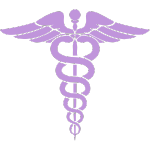Legal Nurse Consultants
Professional Legal Nurse Consultants
Legal Nurse Consultants: What do we do?
Legal nurse consultants (LNCs) bring a unique blend of medical knowledge and legal insight to cases involving medical malpractice, personal injury, workers' compensation, and more. By leveraging their expertise, attorneys gain a competitive edge in understanding complex medical issues crucial to their cases. Don't miss out on the opportunity to enhance your legal strategies by working with our legal nurse consultants at The Professional Care Management & Advocacy Group. Contact us today to see how we can support your legal team and maximize your chances of success.

“Go to” resource for medical legal consulting

Free up valuable staff time

Clinically current

Simplify the medicine with practical, understandable, customized reports

Understand the strengths & weaknesses of your case

Streamline and organize the review of the medical records

Avoid surprises and manage your opposition

Maximize case value

Cost-effective billable expense

Proven expertise with decades of experience

The Benefits of Legal Nurse Consultants:
1. Detailed Case Analysis: LNCs meticulously categorize case information, pinpointing breaches in the standard of care. By sharing these insights with counsel and experts, they save time and money for staffing and expert consultations.
2. Informed Decision-Making: Sharing these insights with counsel and experts saves time and money for staffing and expert consultations. In contrast, informed decision-making ensures no critical facts or potential settlements are overlooked. Counsel can make sound decisions based on LNC evaluations, ensuring no vital facts or possible settlements are overlooked.
3. Seamless Bridging of Legal and Medical Realities: LNCs connect legal theories with medical realities seamlessly. Their unique blend of medical expertise and legal acumen enhances successful litigations.
4. Pre-Lawsuit Support: Before filing a lawsuit, LNCs participate in client interviews and analyze medical records to assess the viability of claims.
The Professional Care Management & Advocacy Group LNCs serve as essential collaborators, strategists, and educators in medical-legal litigation, benefiting both attorneys and clients.
Practice Areas:
Legal nurse consultants navigate a diverse range of environments, spanning independent consulting practices, insurance companies, and legal firms, where they apply their expertise to various specialized practice areas, including:
Medical malpractice
Personal injury
Long-term care litigation/elder law
Product Liability
Toxic tort
Workers’ compensation
Risk management
Life care planning
Regulatory compliance
Forensic/Criminal
Civil rights
Employment discrimination
Medicare Set Asides.
Responsibilities:
LNCs perform specialized functions, including:
Reviewing and analyzing medical records
Conducting client interviews
Conducting medical literature reviews
Identifying medical professional standards of practice
Securing expert witnesses
Translating healthcare language for legal staff
Educating attorneys about medical issues
Providing expert testimony in court
Preparing for depositions and trials
Producing exhibits for legal proceedings
Consulting on product liability cases
Clinical Foundation:
LNCs selectively accept cases rooted in their robust clinical foundation. By specializing in medical-surgical and critical care nursing, they are adept at navigating a wide array of legal scenarios with precision and insight.
Legal Nurse Consultants (LNCs): Medicine & Law
Legal Nurse Consultants (LNCs) play a crucial role at the crossroads of medicine and law. Their specialized combination of medical expertise and legal knowledge allows them to work closely with attorneys and law firms. Let’s explore how LNCs associated with The Professional Care Management & Advocacy Group contribute to various legal practice areas:
1. Medical Malpractice Cases:
LNCs analyze medical records, identify deviations from standards of care, and provide expert opinions on whether negligence occurred.
They assist attorneys in building solid cases by translating complex medical information into understandable terms.
2. Personal Injury Claims:
LNCs evaluate injuries, treatment plans, and medical costs related to accidents or injuries.
They collaborate with legal teams to assess the impact of injuries on the plaintiff’s life.
3. Workers’ Compensation Claims:
LNCs review medical records to determine the extent of work-related injuries.
They help attorneys understand the medical aspects of the case and assess disability claims.
4. Product Liability Cases:
LNCs investigate injuries caused by defective products.
They provide insights into the medical causation and effects of product-related harm.
5. Elder Law and Long-Term Care:
LNCs assist with cases involving elder abuse, neglect, or inadequate care.
They evaluate medical records to uncover signs of mistreatment and advocate for the well-being of older adults.
6. Healthcare Compliance and Regulations:
LNCs guide healthcare organizations and legal teams in understanding complex regulations.
They ensure compliance with healthcare laws and policies.
In summary, LNCs bridge the gap between medicine and the legal system, contributing valuable expertise to various legal matters.
Medical Record Retrieval and Organization
Keeping things organized
1. Record Retrieval and Bookmarking:
Our team of retrieval specialists ease the burden by obtaining all your essential medical documents.
This allows you to focus on critical aspects of your case.
2. Swift Record Influx Solution:
When medical records flood in, the sheer volume and lack of organization can be overwhelming.
We transform chaos into order by creating bookmarked, indexed files.
This efficient process saves your staff, legal nurse, and expert time, ultimately translating to cost savings.
Why Organize with The Professional Care Management & Advocacy Group?
Overwhelmed by Medical Records:
If you’re drowning in medical records, we can help streamline the process.
Resource Constraints:
Your medical experts desire well-organized records, but resource limitations may hinder your staff’s ability to provide them.
Expert Witness Bills:
Unorganized records may lead to higher expert witness bills.
Efficiency and Cost Savings:
Our systematic approach ensures efficient organization, benefiting your team and clients.
Let us transform the chaos of medical records into a well-organized system that supports your legal efforts. For streamlined medical record management, contact us!
Medical Chronologies
Medical chronologies serve as detailed summaries of medical care received. They are presented in chronological order, providing a timeline of significant events. These chronologies are particularly valuable in complex medical cases involving multiple healthcare providers.
Our reports include:
Dates of service
Source of information within the medical record
Definitions of medical terms
Relevant medical research
Identification of:
Gaps in care
Missing records
Inappropriate treatment
Record tampering
Patient non-compliance
Additionally, we offer customized reports tailored to specific cases, ensuring that the reviewing nurse’s expertise aligns with each situation's unique requirements.
Medical Summaries
A medical summary offers a concise overview of critical medical events related to a case. It includes the patient’s past medical history relevant to the situation. Additionally, the summary provides a narrative discussion of events, supported by research excerpts and proper citations. Concluding with recommendations, it assists the legal firm in developing an effective case strategy.
Defense Medical Examination (DME)
Accompanying Clients:
When facing a Defense Medical Examination (DME), having a Professional Care Management & Advocacy Group Nurse by your side can significantly alleviate stress for your client. Especially when dealing with a potentially adversarial doctor, our experienced and compassionate nurses attend DMEs as your trusted allies.
Here’s how we can support you:
1. Observation and Support:
Our nurses act as your eyes and ears during the examination.
They ensure your client receives the care and attention they deserve.
2. Detailed Reports:
We meticulously document the DME, providing concise, well-edited reports that capture essential details.
3. Rebuttal Witness:
Should discrepancies arise between the exam and the physician’s claims, our nurses can serve as valuable rebuttal witnesses in court.
4. Settlement or Trial:
Their firsthand experience can be crucial during settlement negotiations or trials if needed.
5. Cost-Effective Approach:
We assign nurses geographically close to the exam, saving time and money.
Remember, even the smallest detail can make a difference in winning your case.
Expert Medical Malpractice Witnesses
We assist in locating Medical Malpractice Witnesses.
In legal proceedings related to healthcare, medical malpractice expert witnesses play a crucial role. These experts specialize in various fields, including:
Healthcare Law
Patient Safety
Medical Ethics
Clinical Nursing
Additionally, some of the most common medical malpractice expert witness specialties encompass:
Surgery
Obstetrics and Gynecology
Psychiatry
Emergency Medicine
Here’s a summary of the valuable insights provided by medical malpractice expert witnesses:
1. Surgical Errors:
Analyzing and opening up mistakes made during surgical procedures.
Evaluating the impact of errors such as incorrect incisions or instrument mishandling on patient outcomes.
2. Misdiagnoses:
Assessing cases where patients receive an incorrect diagnosis.
Highlighting the consequences of misdiagnoses, which can lead to delayed treatment or inappropriate interventions.
3. Delayed Treatment:
Evaluating the impact of delayed medical attention on patient health.
Addressing potential harm caused by delays.
4. Improper Medication Dosages:
Delving into cases where medication dosages are administered incorrectly (overdose or underdose).
Determining liability and patient safety implications.
5. Informed Consent:
Emphasizing the importance of patients fully understanding risks, benefits, and alternatives before undergoing any medical procedure.
Ensuring informed consent is obtained.
These insights play a pivotal role in legal proceedings related to medical malpractice cases, ensuring justice and patient safety.
Medical and Nursing Malpractice Cases
Medical and Nursing Malpractice Cases encompass situations where healthcare providers or facilities fail to meet the expected standard of care. This negligence can occur across all specialties within the healthcare industry, presenting risks for both medical practitioners and patients.
General Personal Injury Cases
Nonprofessional negligence cases, such as:
Auto accident cases.
Premises liability cases (e.g., slip and fall, high-stacking injuries, sexual assault, physical assault cases).
Theme park cases.
Aviation cases.
Liquor liability cases.
Railroad cases.
Admiralty and maritime cases.
Water accident cases.
Sports injury cases.
Toxic mold cases.
Dog bite cases.
Products Liability Cases
Cases involving the liability of manufacturers and sellers of a product to buyers, users, and even bystanders who allege damages or injuries as a result of a defective product.
Nonmedical device cases, such as cases relating to:
Machinery and equipment.
Children’s toys and products.
Cigarettes and cigarette lighters.
Motor vehicles, automobiles, and automobile parts.
Food.
Household products.
Personal care products.
Consumer products (e.g., appliances).
Industrial products.
Toxic Torts and Environmental Cases
Cases involving alleged damages or injuries resulting from the release of toxins into the environment, such as toxins from:
Oil spills.
Waste products from manufacturing processes.
Electromagnetic fields (e.g., against a utility company).
Radiation contamination.
Hazardous chemicals in a workplace.
Waste management and disposal.
Pesticides.
Sick building syndrome.
Lead poisoning.
Workers’ Compensation and Workplace Injury Cases
Cases involving job-related injuries arising out of and in the course of employment, such as:
Equipment- and machinery-related injuries.
Cumulative trauma disorders.
Injuries caused by objects striking workers.
Back injuries.
Auto accidents.
Criminal Cases
Cases involving any act that society has deemed contrary to the public good because the act is harmful to all of society and violates the peace and tranquility of the community, such as:
Driving while intoxicated (DWI)/driving under the influence (DUI) cases.
Sexual and physical assault cases.
Child, spouse, or elderly abuse cases.
Criminal cases against individual providers and facilities.
Criminal environmental cases.
Any case involving a victim of a violent crime.
Psychiatric defenses and psychiatric issues.
Medicaid and Medicare fraud and abuse cases.
Possession of narcotics cases.
Excessive use of force by law enforcement cases.
Any Case Where Health, Illness, or Injury Is an Issue
Many types of cases involving medical-related issues, such as:
Family law (e.g., custody battle).
Probate (e.g., competency in issue).
School health (e.g., injury of child while crossing the street, sexual assault by a teacher).
Americans with Disabilities Act (ADA).
Employer-employee relationships (e.g., wrongful dismissal).
Sexual harassment.
Right to die.
Social Security benefit issues.
Medicare benefit issues.
Physician-facility relationships (e.g., physician dropped from an HMO, preferred provider network, or managed care network).
Psychiatrist or therapist abuse or injury.
Insurance (e.g., reasonableness of a medical bill, relationship of a medical bill to the alleged damages or injuries).
Family Leaves Act.
Bad faith litigation involves suing insurance companies for failing to pay a claim or for denial of access to specific care or treatment.
Wrongful adoption.
Healthcare professional board disciplinary actions.
Our commitment extends to providing the optimal care management experience, regardless of the level at which you engage with us.
When your family cannot be by your side, consider us your dedicated team, treating you with the same care and compassion. Reach out to our team today to get started.

